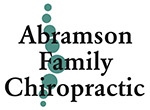The Effect of Low Back Pain on the Hips and Lower Extremities
A systematic review that included 54 studies found that individuals with non-specific low back pain often exhibit significant reductions in hip range of motion, particularly in internal rotation; weakness in the hip abductor and extensor muscles; and greater involvement of the hamstrings and gluteus maximus during functional activities. BMC Musculoskeletal Disorders, May 2024
Short Sleep Worsens Effect of Hypertension on the Brain
Using data from the Framingham Heart Study, researchers report that for individuals with high blood pressure, sleeping fewer than seven hours a night is associated with a higher presence of white matter hyperintensities and worse performance on cognitive assessments. The findings suggest that individuals under treatment for hypertension should be screened for poor sleep as well. Journal of the American Heart Association, November 2024
Omega-3 Fatty Acid Supplements for Heart Health?
While omega-3 fatty acids are thought to benefit heart health, studies have had mixed results. In a recent study, researchers did not observe that a daily fish oil supplement reduced overall cardiovascular disease risk; however, such supplementation did significantly reduce the risk for heart attack, especially in individuals with low fish intake or multiple heart disease risk factors. New England Journal of Medicine, October 2024
Physical Activity and its Effect on Diabetes Risk Factors
In a recent experiment, researchers observed that a single 30-minute light jog can provide notable short-term improvements in glucose metabolism, leading to reduced fasting glucose and insulin levels. Journal of Endocrinological Investigation, April 2024
Bilingualism Changes the Brain
A comparison of brain imaging of individuals who are either monolingual or bilingual found that those who know two languages have increased connectivity between brain regions, especially those who learned a second language at a young age. It’s believed greater connectivity in the brain may support healthier brain aging and recovery from brain injury. Communications Biology, October 2024
Some Women May Need Mammograms Before Age 40
Rutgers Cancer Institute notes that while most guidelines recommend regular mammograms after age 40, women with the following risk factors may be advised to commence screening at a young age: a family history of breast cancer; genetic mutations like BRCA1 or BRCA2; dense breast tissue; or early radiation exposure. Rutgers Cancer Institute, October 2024
“To live without Hope is to cease to live.” ~ Fyodor Dostoevsky
This information should not be substituted for medical or chiropractic advice. Any and all health care concerns, decisions, and actions must be done through the advice and counsel of a health care professional who is familiar with your updated medical history.
